Babylonian Exile Quotes & Sayings
Enjoy reading and share 11 famous quotes about Babylonian Exile with everyone.
Top Babylonian Exile Quotes
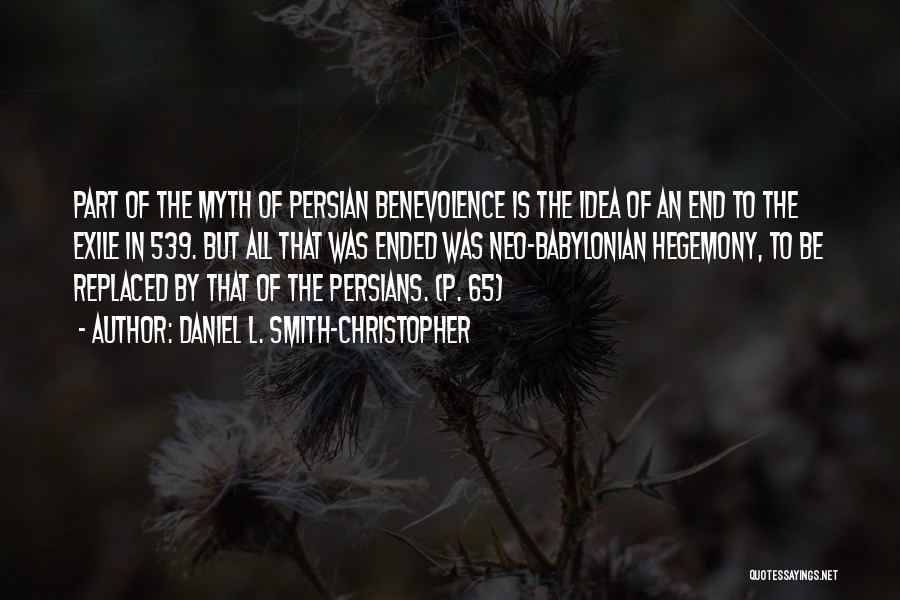
Part of the myth of Persian benevolence is the idea of an end to the exile in 539. But all that was ended was Neo-Babylonian hegemony, to be replaced by that of the Persians. (p. 65) — Daniel L. Smith-Christopher
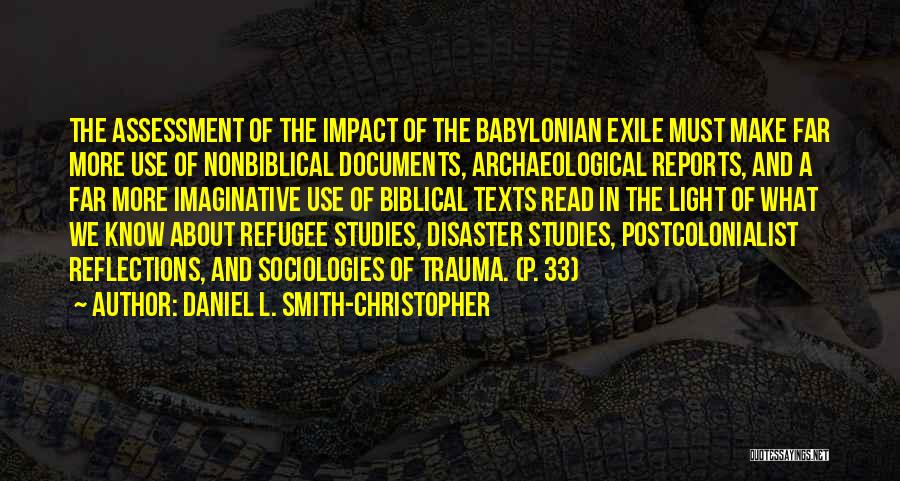
The assessment of the impact of the Babylonian exile must make far more use of nonbiblical documents, archaeological reports, and a far more imaginative use of biblical texts read in the light of what we know about refugee studies, disaster studies, postcolonialist reflections, and sociologies of trauma. (p. 33) — Daniel L. Smith-Christopher
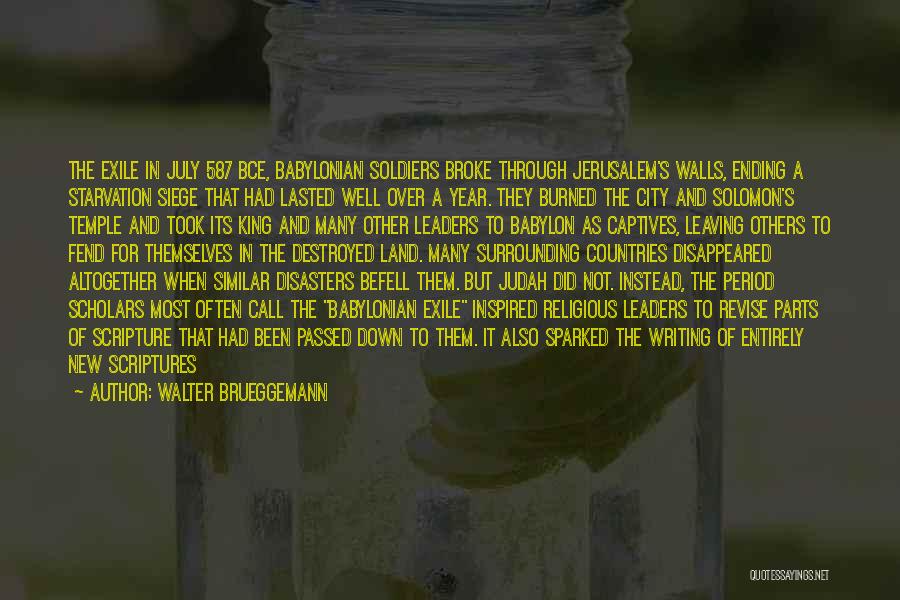
The Exile In July 587 BCE, Babylonian soldiers broke through Jerusalem's walls, ending a starvation siege that had lasted well over a year. They burned the city and Solomon's temple and took its king and many other leaders to Babylon as captives, leaving others to fend for themselves in the destroyed land. Many surrounding countries disappeared altogether when similar disasters befell them. But Judah did not. Instead, the period scholars most often call the "Babylonian exile" inspired religious leaders to revise parts of Scripture that had been passed down to them. It also sparked the writing of entirely new Scriptures and the revision of ideas about God, creation, and history. Much of what is called the Hebrew Scriptures or Old Testament was written, edited, and compiled during and after this national tragedy. — Walter Brueggemann
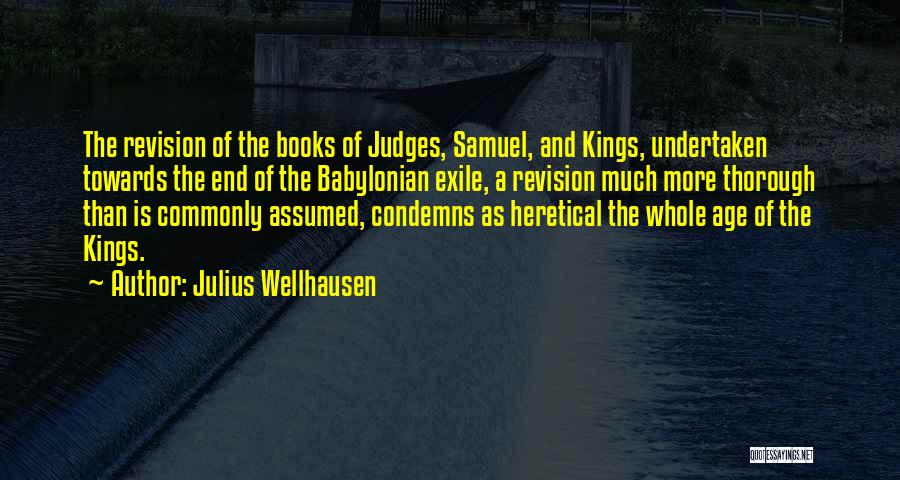
The revision of the books of Judges, Samuel, and Kings, undertaken towards the end of the Babylonian exile, a revision much more thorough than is commonly assumed, condemns as heretical the whole age of the Kings. — Julius Wellhausen
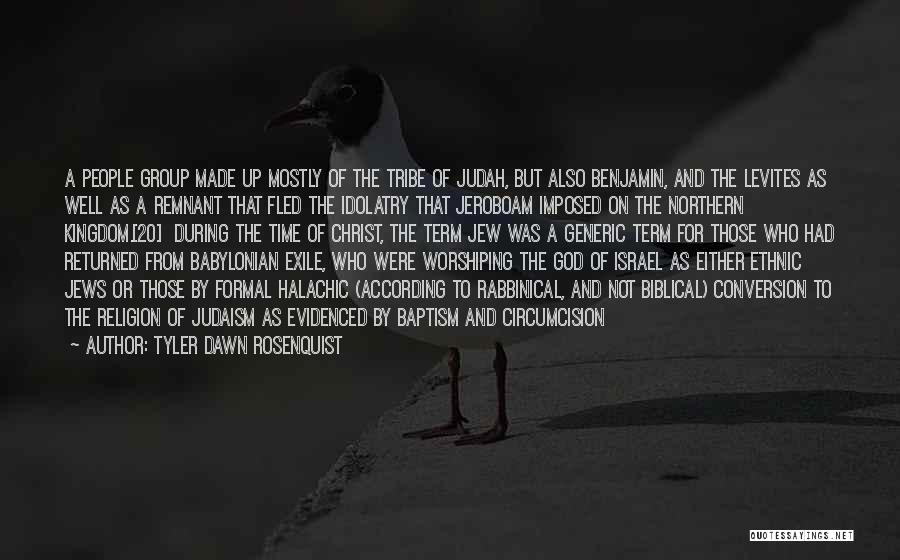
A people group made up mostly of the tribe of Judah, but also Benjamin, and the Levites as well as a remnant that fled the idolatry that Jeroboam imposed on the Northern Kingdom.[20] During the time of Christ, the term Jew was a generic term for those who had returned from Babylonian exile, who were worshiping the God of Israel as either ethnic Jews or those by formal halachic (according to Rabbinical, and not Biblical) conversion to the religion of Judaism as evidenced by baptism and circumcision — Tyler Dawn Rosenquist
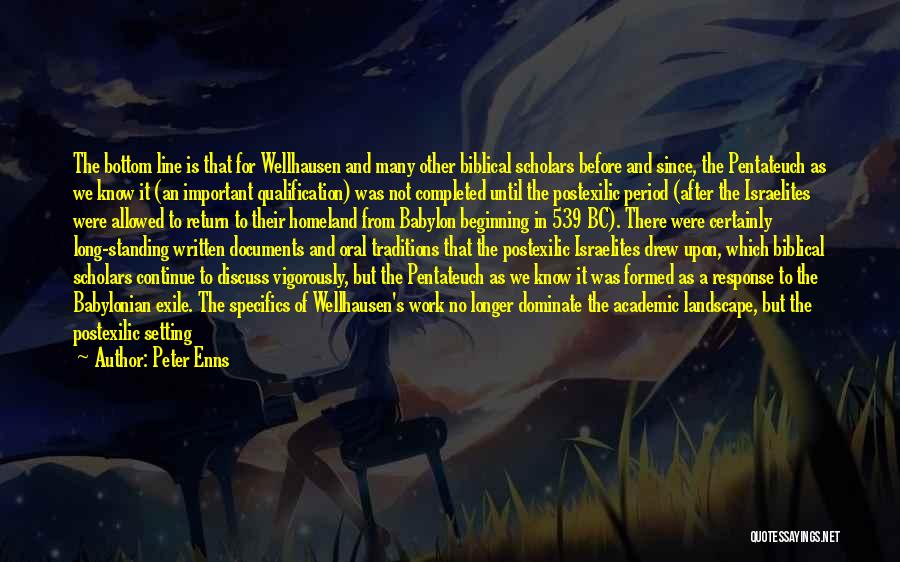
The bottom line is that for Wellhausen and many other biblical scholars before and since, the Pentateuch as we know it (an important qualification) was not completed until the postexilic period (after the Israelites were allowed to return to their homeland from Babylon beginning in 539 BC). There were certainly long-standing written documents and oral traditions that the postexilic Israelites drew upon, which biblical scholars continue to discuss vigorously, but the Pentateuch as we know it was formed as a response to the Babylonian exile. The specifics of Wellhausen's work no longer dominate the academic landscape, but the postexilic setting for the Pentateuch is the dominant view among biblical scholars today. — Peter Enns

Thus, the removal of the Jewish people to Babylonia laid the groundwork for the Christian faith. Simply put, the Gentiles who followed Jesus had some familiarity with the Jews' monotheism because of their erstwhile proliferation throughout the Mediterranean realm. — James Mikolajczyk
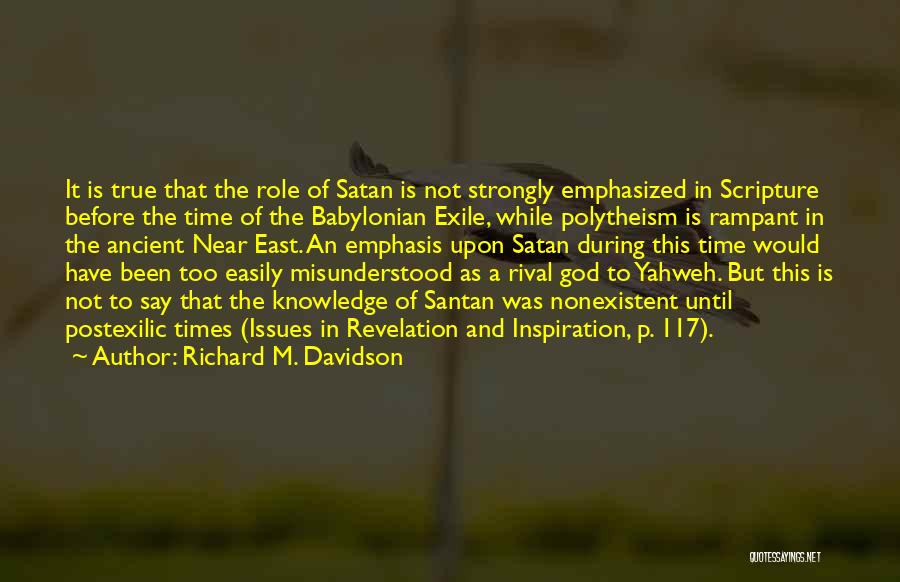
It is true that the role of Satan is not strongly emphasized in Scripture before the time of the Babylonian Exile, while polytheism is rampant in the ancient Near East. An emphasis upon Satan during this time would have been too easily misunderstood as a rival god to Yahweh. But this is not to say that the knowledge of Santan was nonexistent until postexilic times (Issues in Revelation and Inspiration, p. 117). — Richard M. Davidson
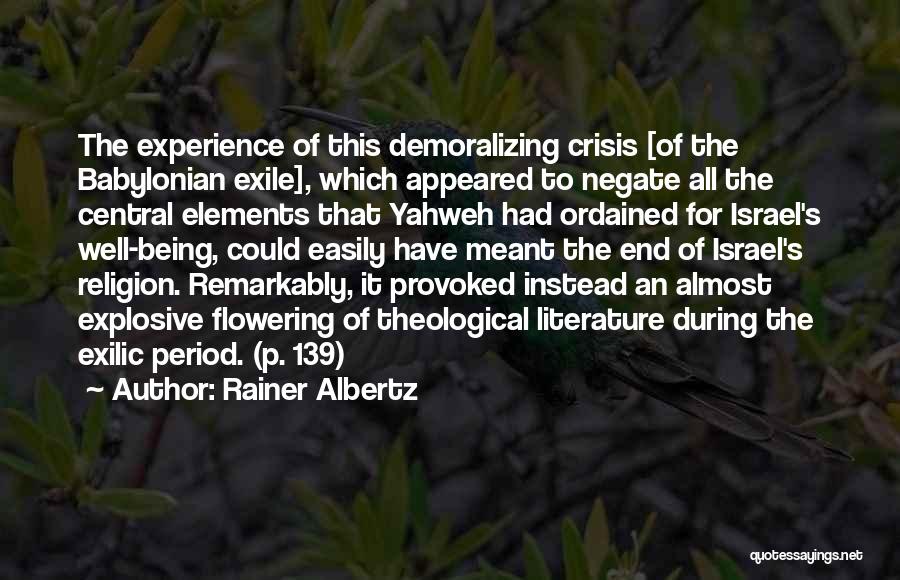
The experience of this demoralizing crisis [of the Babylonian exile], which appeared to negate all the central elements that Yahweh had ordained for Israel's well-being, could easily have meant the end of Israel's religion. Remarkably, it provoked instead an almost explosive flowering of theological literature during the exilic period. (p. 139) — Rainer Albertz

If we are able to read stereotypical language of the Bible in reference to suffering -- and particularly the suffering involved in siege warfare -- as a measure not so much of the historical details of the disaster or catastrophe, but rather as a measure of the emotional, social, and obviously therefore spiritual impact of the disaster (after all, this is religious literature), then our analysis of a good deal of biblical literature in relation to the exile would need to be rethought. Stereotypical literature of suffering is not literature that can somehow be 'decoded' to mean that the exiles actually lived in Babylonian comfort. (p. 104) — Daniel L. Smith-Christopher
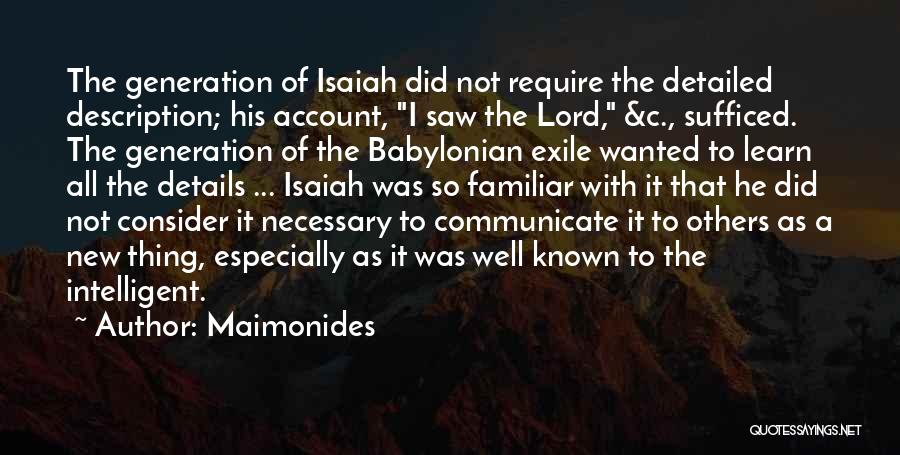
The generation of Isaiah did not require the detailed description; his account, "I saw the Lord," &c., sufficed. The generation of the Babylonian exile wanted to learn all the details ... Isaiah was so familiar with it that he did not consider it necessary to communicate it to others as a new thing, especially as it was well known to the intelligent. — Maimonides





